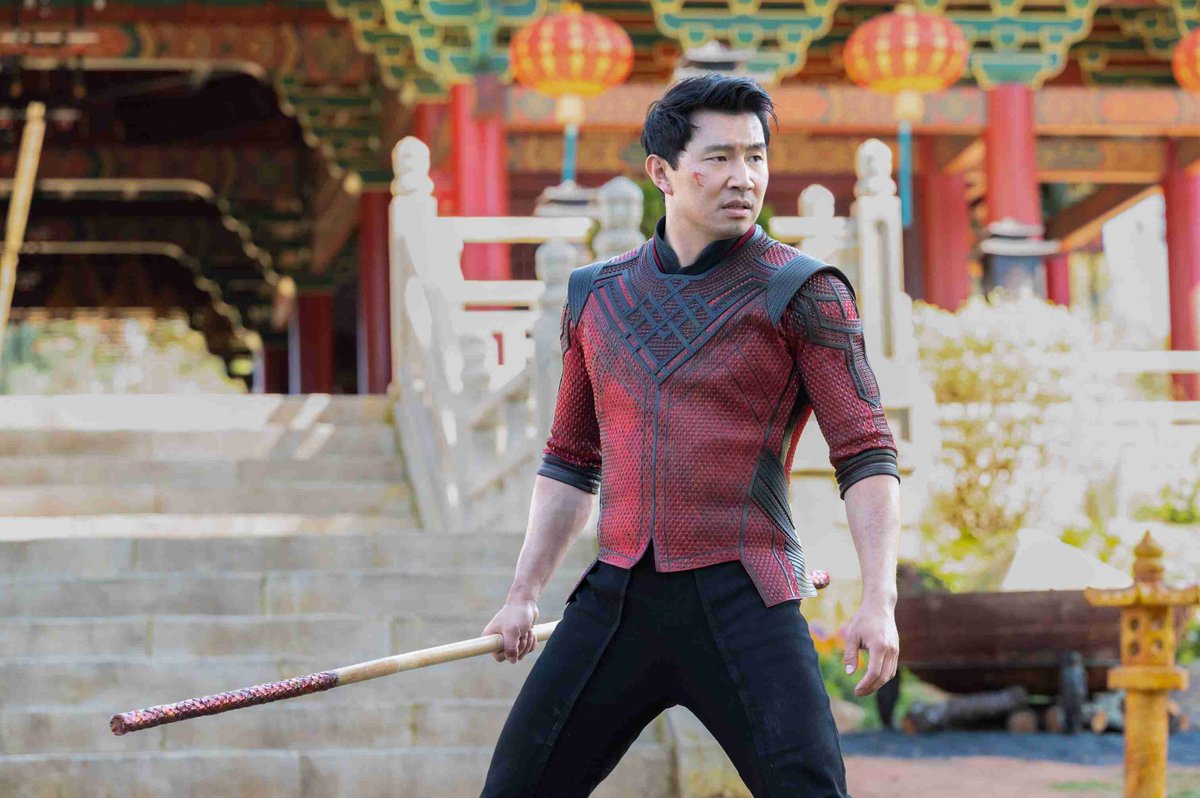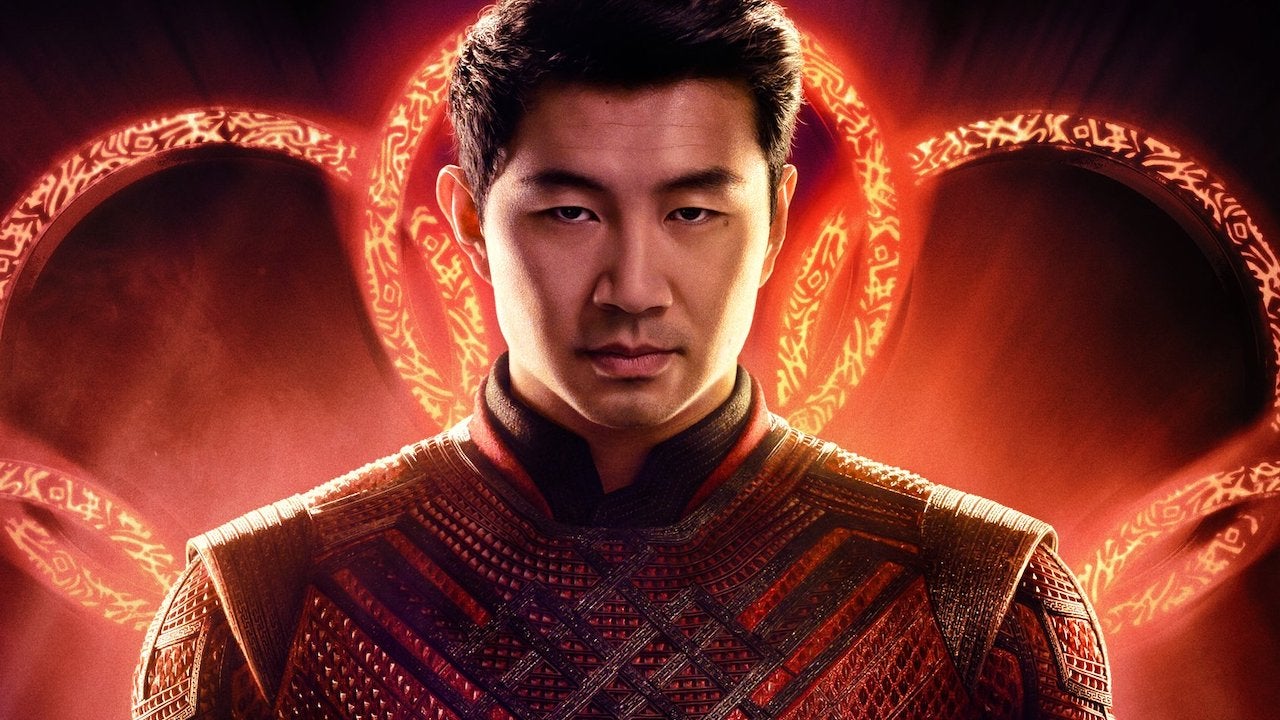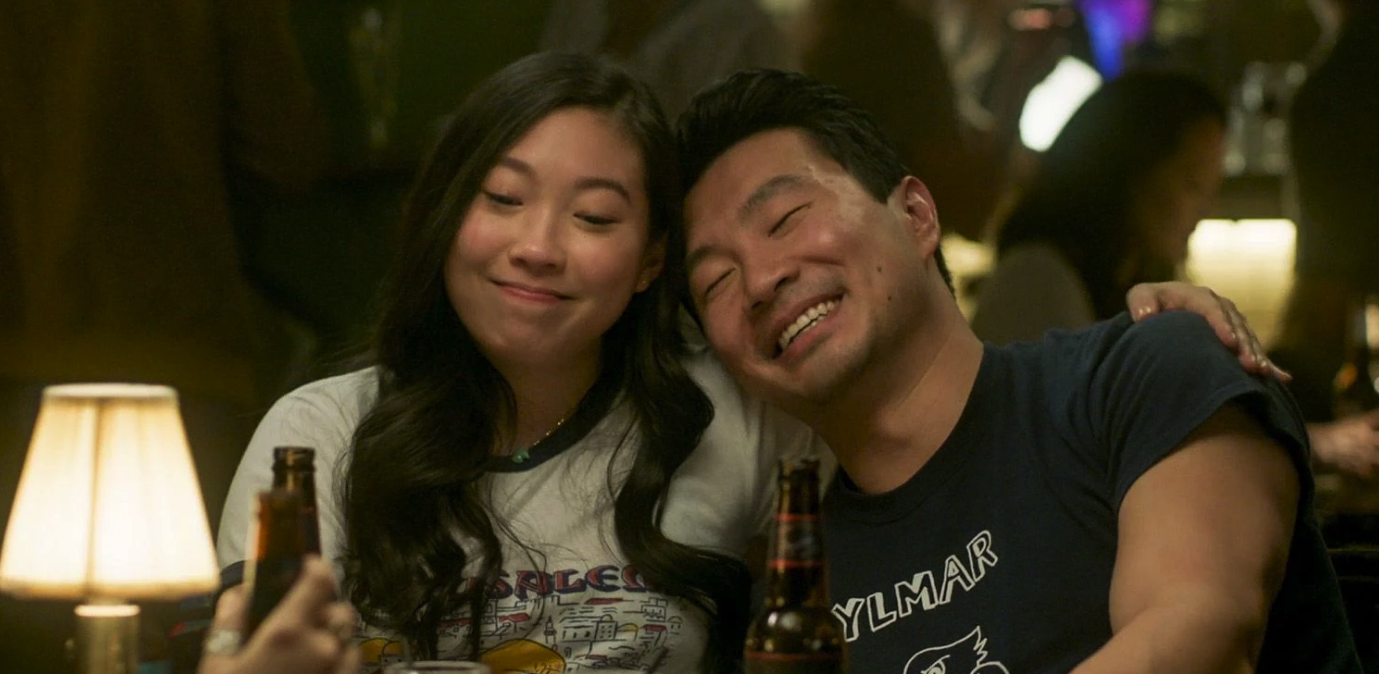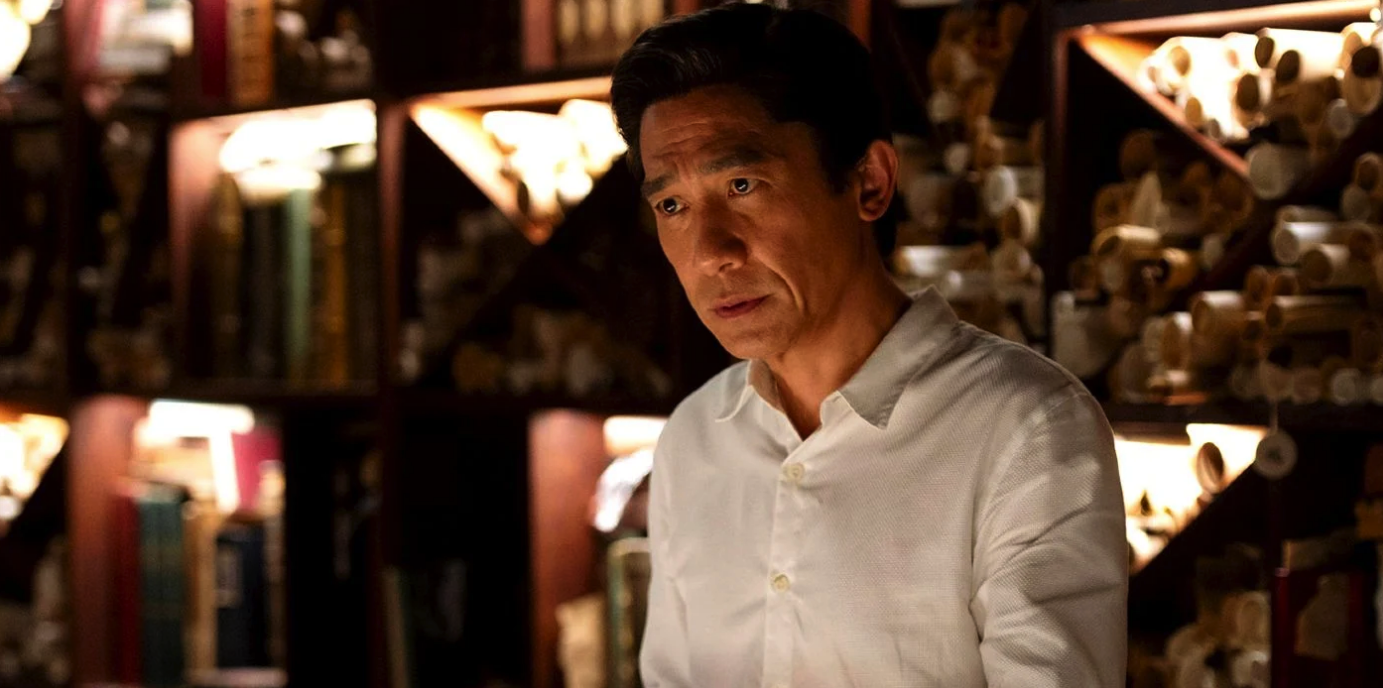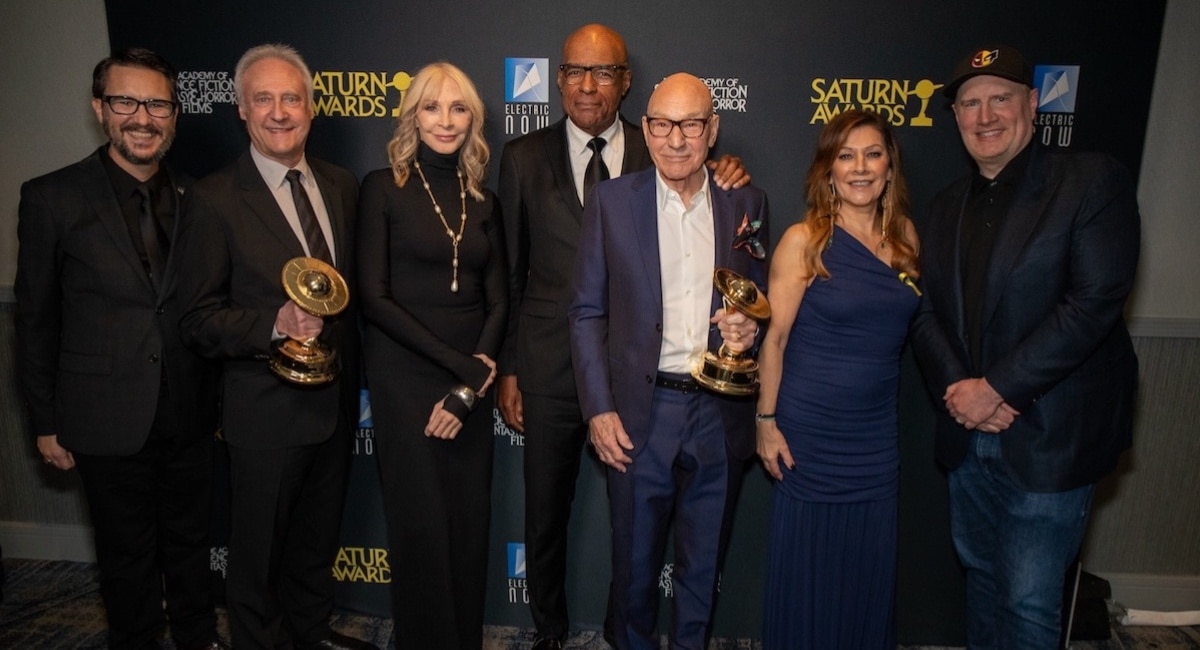Shang-Chi and the Legend of the Ten Rings is finally out in the world, and we spoke with some of the stars of this groundbreaking new MCU movie about the past and the future of the Marvel Cinematic Universe. In their press conference, cast members Simu Liu, Awkwafina, Meng’er Zhang, Ben Kingsley, and Ronny Chieng discussed the nuances and experiences of being a part of Shang-Chi, while director Destin Daniel Cretton talked about taking on the monumental role of directing the first predominantly Asian film.
“I feel like the stories that I am drawn to are a combination of humor, optimism, but also not shying away from the very real darkness and pain that we all experience as humans,” said Cretton, who had previously worked as a child care worker at a group home for at-risk teenagers and felt that his past job impacted not only his life but also his world view. “And I think this movie really does encapsulate a lot of the things that I really believe in.”
Pitching Shang-Chi
It might seem intimidating to step into the shoes as the director of a major blockbuster movie like a Marvel movie, and it was. For Cretton, who has directed mostly indie films, it also was something he wasn’t interested in initially.
“I did have a giant personal fear of stepping into a movie like this. When I pitched to Kevin [Feige] in the pitch, I told myself I’m just gonna be myself. I have a tendency to be pressured to not be myself and I was like, I’m just gonna be myself in this pitch and walk out feeling good that I did that. The last thing that I admitted was, they asked me, ‘Have you always wanted to do a big Marvel movie?'”
“And I was like, ‘Should I tell them?’ And I was like, ‘Okay, well, the truth was, it was a few weeks before they announced that they were looking for directors for this movie that I made a very real decision and called my manager or my agent and said don’t ever let me do a Marvel movie.’ So, I said this to Kevin and Lou and Victoria and Jonathan in the pitch. And then [I] explained to them when they made the announcement for Shang-Chi something sparked in me that made me have to go in and just take a meeting and that turned into this.”
The thing that Ryan [Coogler] said to me, which really eased my mind, was the pressure is hard. It’ll be the hardest thing potentially that you have done up to this point, but none of that pressure, or none of those complications, come from the people that you’re working with or for. — Destin Daniel Cretton
“When I was in the elevator going down, I was leaving that meeting, I thought you’re an idiot for saying that final thing. But when it came down to it, I did have a conversation with Ryan Coogler and I was scared of stepping into a big studio movie like this and scared of what it might do to me. Will the pressure– Will I cave? I had a lot of fears,” Cretton admitted, shedding some light on the advice that the Black Panther director gave him.
“The thing that Ryan said to me, which really eased my mind, was the pressure is hard. It’ll be the hardest thing potentially that you have done up to this point, but none of that pressure, or none of those complications, come from the people that you’re working with or for. And that’s what I found. This is like a very special place to work where, not to toot Kevin’s horn, but there is an environment of curiosity, of exploration, that comes from the top down.”
“There is no fear-based mentality in this studio which has really allowed us to take risks and chances and be able to instill that same fearless exploration with everybody involved in this film and I think that’s a huge reason that the movie turned out the way that it did.”
For Cretton, Shang-Chi’s journey is one he can personally connect to. “It is a journey of self-discovery, of growing up, of learning how to finally deal with pain that he’s been running away from his entire life. And that when he is finally able to look inside into his past and embrace good, bad, the joy, the pain, and accept it all as a part of himself, that’s when he finally steps into his big boy shoes, and I don’t know, I think that’s kind of what we’re all doing as humans in some way or another. So, I really connect with that.”
At Marvel Studios, Kevin Feige explained that Shang-Chi was about both bringing representation to the screen and also expanding on the large MCU roster of heroes. “My producing partner on this film, Jonathan Schwartz, has worked on this movie for a long time. We wanted to [make this movie] to bring this specific character into the MCU but just as important to bring a representation of another kind to this film. And that was really what Destin brought in his pitch. Which was yeah, action, cool, Marvel, but it was really the story of this father and son that, someday you should put that presentation out into the world actually that he put together, ’cause it was as beautiful as the final film,” said Feige.
Cretton added, “And I think what is extra relevant to the culture is that this is a Marvel film. And if we were not putting Shang-Chi shoulder-to-shoulder with all the amazing other Marvel superheroes that we’ve come to love in the past, that would be, to me, a big disservice to the culture and the character.”
Becoming Shang-Chi
When it came to casting for Shang-Chi, the titular hero is played by Simu Liu, who had tweeted out to Marvel back when the movie was announced. The tweet obviously came back with a vengeance when Liu’s casual tweet somehow turned into a manifestation when Liu was cast in 2019 as the superhero.
OK @Marvel, are we gonna talk or what #ShangChi
— Simu Liu (刘思慕) (@SimuLiu) December 3, 2018
Liu, who was also curious about whether Feige had seen the initial tweet, if that was the inspiration for casting him, finally got his answer.
“Unfortunately, Simu, it was not your tweeting,” Feige said. “It was your acting ability, your constant professionalism, and then multiple reads and meetings that you did that got you the job.”
For Liu, stepping into the role of such an anticipated character, the first Asian superhero on the MCU movie screen, there was an understandable amount of pressure. “It was like imposter syndrome every single day. It was such a treat and it was all I could do just not to mess it up,” Liu explained.
The actor added that working alongside his co-star Awkwafina (aka Nora Lum) helped his nerves. “When I was first cast, I did my final screen test with Nora, and she did such a wonderful job of putting me at ease. My nerves were sky high. I was an actor from Toronto, and I really had never allowed myself to imagine being a part of the MCU. I mean, it’s the craziest dream that someone can possibly dream. Nora did such a great job of putting me at ease and just being in the moment with me and we had such a beautiful chemistry.”
And speaking of that chemistry, Katy, Awkwafina’s character, is Shang-Chi’s best friend and the two have an amazing platonic relationship, but obviously audiences might suspect or hope that there is something else beyond just friendship with the two characters.
“Aren’t all friendships potential love interests?” Cretton teased, adding, “When one of our co-writers, Dave Callahan, and I were creating this relationship, we actually have a lot of friends who are not the same gender as us, and it is strictly platonic but also very intimate, caring, and we haven’t seen a lot of that on screen. We’re really excited to create that relationship between Shang-Chi and Katy. It also just naturally felt like the only way to go with this movie because Shang-Chi is so deep in his own inner struggle. I don’t think there’s emotional space for anything else.”
Speaking the Language
Much of Shang-Chi‘s dialogue is spoken in Mandarin Chinese, both in narration and amongst the characters. Indeed, even during this press conference, there was a lot of Mandarin being thrown around amongst the actors that actually felt quite comforting for a Mandarin speaker like me. When it comes to Western-produced project, even when films feature a predominantly Asian cast, the dialogue might still be in English.
But, as Cretton pointed out, the thought process behind choosing Mandarin as the spoken language for some of the characters was just based on logic. “That conversation started in the writer’s room and then once our actors came in, it was always a dialog. These are all bilingual, trilingual, quadrilingual characters who could speak whatever made sense at the time. So, we were constantly having the discussion of what made sense for the scene.”
Liu pointed out a scene in the movie, which I also pointed to in my review, as a big moment for him, where Ronny Chieng’s Jon Jon tells Katy, who says her Chinese isn’t good, that he speaks ABC. For those who don’t know, ABC means American-born Chinese, a phrase that many Chinese-Americans use to identify themselves.
“That was really a big moment,” Awkwafina agreed, “I think like culturally, you just never see that. You never see that referred to.”
“It’s just the first time that you really see in a movie someone just calling out a lived experience,” Liu added.
Chieng also pointed out that Chinese speakers could also identify the different accents that each actor spoke with when it came to Mandarin. This is also very significant because that is a very large part of being Chinese, understanding the regionalism within China. It is immensely common for people to identify people by their accent or what dialect they are speaking, and even in a movie where all the actors are speaking Mandarin, you can still spot some of the differences and similarities.
Bringing Shang-Chi to life is about much more than just putting an all-Asian cast on the screen, it’s about diving deep into the culture and the philosophy and showing that there is something beyond just what is on the surface, which Cretton and his cast did marvelously.
Shang-Chi and the Legend of the Ten Rings is out in theaters now!



